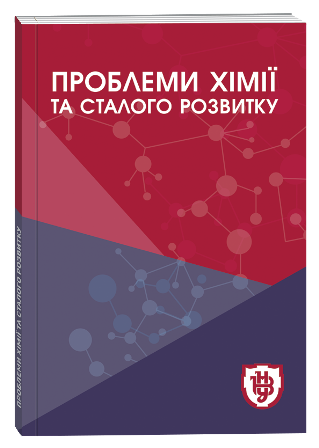ПІДГОТОВКА МАЙБУТНІХ ПЕРЕКЛАДАЧІВ ДО МОВНОЇ ЛОКАЛІЗАЦІЇ ЯК ІННОВАЦІЙНОГО ВИДУ ПЕРЕКЛАДАЦЬКОЇ ДІЯЛЬНОСТІ
DOI:
https://doi.org/10.32782/pcsd-2023-3-12Ключові слова:
професійна підготовка, майбутні перекладачі, локалізація,мовна локалізація, перекладАнотація
Встановлено, що індустрія локалізації в останнє десятиліття стала найактивнішим та найвпливовішим сегментом на ринку постачальників мовних послуг. Ця тенденція виявляється не лише у збільшенні частки проєктів з локалізації, а й у зміні маркетингових стратегій перекладацьких компаній. Зокрема, терміни «локалізація» та «лінгвіст» поступово витісняють терміни «переклад» та «перекладач». Постачальники послуг перекладу стали приділяти значно більше уваги в маркетинговому дискурсі технічним і технологічним аспектам локалізації, зміщуючи акцент з власне мовної складової проєктів (перекладу у вузькому значенні слова) на такі аспекти локалізації, як робота з кодом, інжиніринг веб-сайтів, пошукова оптимізація (локалізація ключових слів) , управління проєктами, оцінка якості тощо. Розглянуто різновиди мовної локалізації: технічна (забезпечення функціонування продукту в умовах певної лінгвокультурної дійсності); часткова (локалізація текстового вмісту без залучення будь-яких інших елементів); паперова («коробкова» локалізація, перекладу підлягає лише вміст продукту); поверхнева –(додавання інформації про розробника, логотип та знак авторського права, компанії-локалізатора). Найефективніший шлях інтеграції проблематики, пов’язаної з мовною локалізацією, у програми підготовки майбутніх перекладачів передбачає, з одного боку, розширення спектру теоретичних та прикладних питань перекладознавства, а з іншого – створення міждисциплінарних програм підготовки у тісній взаємодії з фахівцями у галузях комп’ютерної лінгвістики, людино-комп’ютерної взаємодії, веб-інжинірингу та веб-дизайну. Така підготовка передбачає ознайомлення студентів із веб-технологіями, які стосуються локалізації, а також вивчення процесів локалізації з позицій перекладача, керівника проєкту та інженера у галузі локалізації. Враховуючи тренд, що формується, і попит на локалістів в українському і міжнародному цифровому сегменті, перспективи подальших досліджень вбачаємо у всебічному вивченні специфіки мовної локалізації в межах підготовки майбутніх перекладачів.
Посилання
Блинова Н., Павленко В. Локалізація сайту: функціональний та лінгвістичний аспекти. Communications and Communicative Technologies. 2022. Вип. 22. С. 15–25.
Бондаренко О. С., Бондаренко К. Л. Професійний профіль перекладача-локалізатора в українських програмах підготовки перекладачів. Наукові записки. Серія: Філологічні науки. 2023. Вип. 1 (204). С. 13–23.
Верменич Я. Глобалізація vs локалізація: діалектика взаємодії у сучасному світі. Міжнародні зв’язки України: наукові пошуки і знахідки. 2021. Вип. 30. С. 207−224.
Селіванова О. О. Проблема диференціації перекладацьких трансформацій. Нова філологія. 2012. Вип. 50. С. 201–208.
Ardelean C. Localization: the new challenge for translators: A course for 1st year Master studies. Bucuresti: Editura Conspress, 2013. 83 р.
Bernal-Merino M. A. The Localization of Videogames. PhD Thesis. London: Imperial College, 2013. 256 р.
Declercq C. Advertising and localization. In K. Malmkjær and K. Windle (Eds.), The Oxford Handbook of Translation Studies. Oxford; New York: Oxford University Press, 2011. Р. 262–274.
Jiménez-Crespo M. A. Translation and Web Localization. London: routledge, 2013. 244 р.
Mangiron C., O’Hagan М. Game Localisation: Unleashing Imagination with «Restricted’»Translation. The Journal of Specialised Translation. 2016. Vol. 6. Р. 10–21.
Mazur I. The Metalanguage of Localization: Theory and Practice. Target. 2007. Vol. 19 (2). Р. 340–353.
Pym A. The Moving Text – Localization translation, and distribution. Amsterdam, Philadelphia P.A.: John Benjamins, 2004. 223 р.
Rebrii O., Demetska V. Adaptation, association, and analogy: triple A of the translator’s decision-making. East European Journal of Psycholinguistics. 2020. Vol. 7 (2). Р. 231–242.
Schäler R. Localization, In The Routledge Encyclopaedia of Translation Studies. [Second edition]. London, New York: Routledge, 2009. Р. 157–161.
Smartling. Translation vs Localization: How is Translation Different from Localization? 2021. URL: https://www.smartling.com/resources/101/how-is-translationdifferent-from-localization/ (accessed 04.10.2023).
Tomenchuk M. & Chechur Т. Website localization and translation. Науковий вісник Ужгородського університету: серія: Філологія. 2019. Vol. 2 (42). Р. 96–99.







